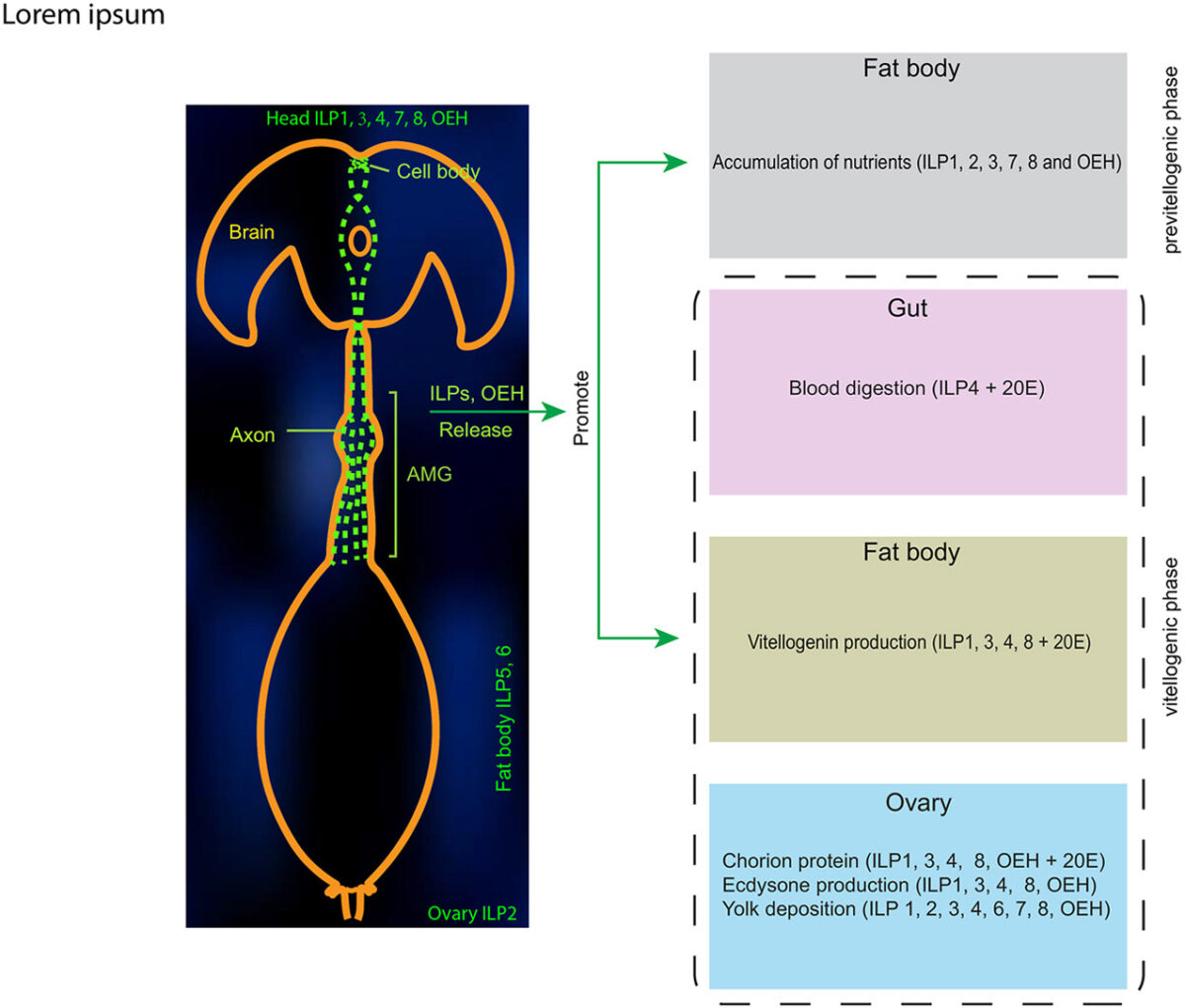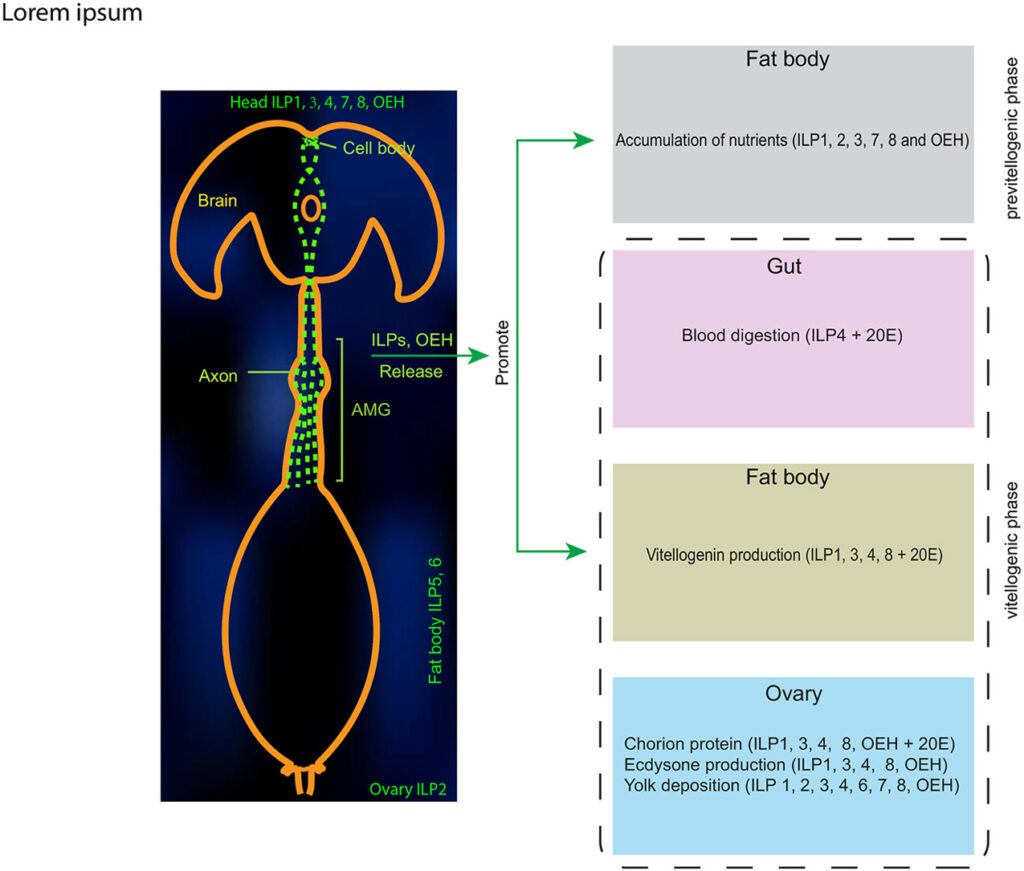Insulin-like peptides and ovary ecdysteroidogenic hormone differentially stimulate physiological processes regulating egg formation in the mosquito Aedes aegypti

Mosquitoes including Aedes aegypti are human disease vectors because females must blood feed to produce and lay eggs. Blood feeding triggers insulin-insulin growth factor signaling (IIS) which regulates several physiological processes required for egg development. A. aegypti encodes 8 insulin-like peptides (ILPs) and one insulin-like receptor (IR) plus ovary ecdysteroidogenic hormone (OEH) that also activates IIS through the OEH receptor (OEHR). In this study, we assessed the expression of A. aegypti ILPs and OEH during a gonadotropic cycle and produced each that were functionally characterized to further understand their roles in regulating egg formation. All A. aegypti ILPs and OEH were expressed during a gonadotropic cycle. Five ILPs (1, 3, 4, 7, 8) and OEH were specifically expressed in the head, while antibodies to ILP3 and OEH indicated each was released after blood feeding from ventricular axons that terminate on the anterior midgut. A subset of ILP family members and OEH stimulated nutrient storage in previtellogenic females before blood feeding, whereas most IIS-dependent processes after blood feeding were activated by one or more of the brain-specific ILPs and/or OEH. ILPs and OEH with different biological activities also exhibited differences in IIS as measured by phosphorylation of the IR, phosphoinositide 3-kinase/Akt kinase (AKT) and mitogen-activated protein kinase/extracellular signal-regulated kinase (ERK). Altogether, our results provide the first results that compare the functional activities of all ILP family members and OEH produced by an insect.
Kangkang Chen, Xiaoyi Dou, Jai Hoon Eum, Ruby A Harrison, Mark R Brown, Michael R Strand. Insect Biochem Mol Biol. 2023 Oct 30:104028. doi: 10.1016/j.ibmb.2023.104028.

